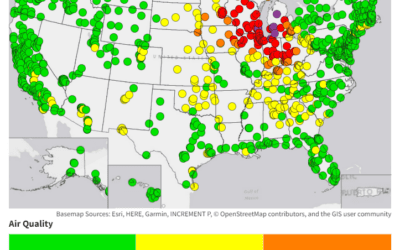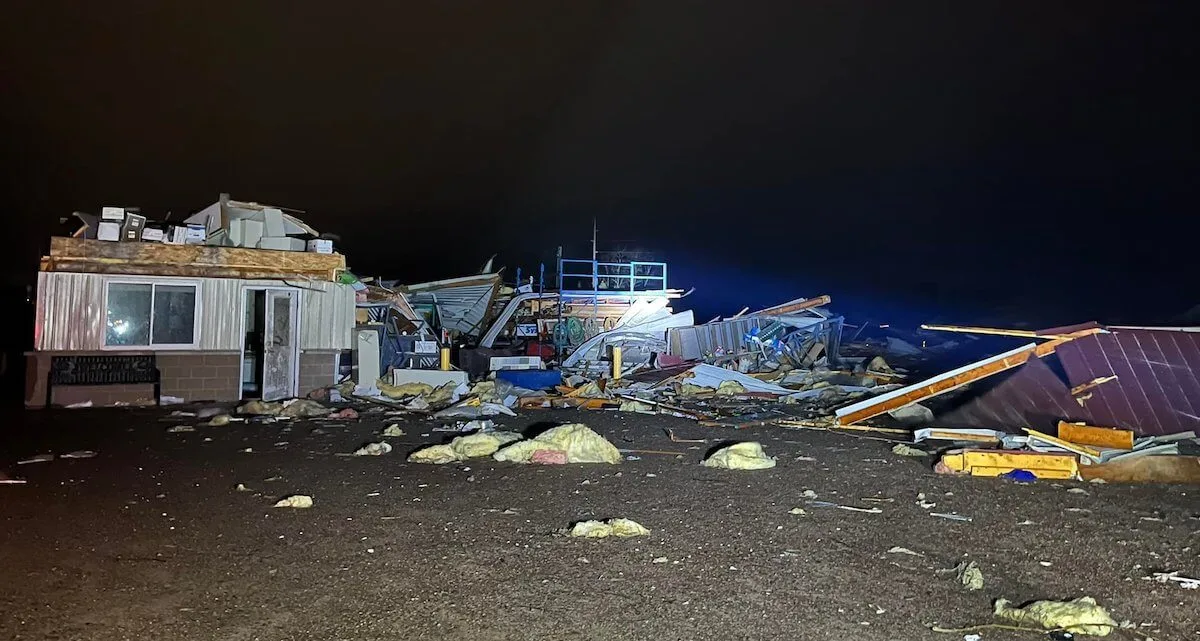
#image_title
Higher temperatures during windier winter months make unseasonably severe winter more likely across the Midwest.
Less than a week after out-of-season tornadoes ravaged parts of Kentucky, Illinois, and Missouri—killing more than 70 people in Kentucky alone—Wisconsin got its own dose of unseasonably extreme weather Wednesday when a line of windstorms, and a few small tornadoes, ravaged parts of western and central Wisconsin.
The National Weather Service (NWS) in La Crosse confirmed that an EF-2 tornado had touched down near Neillsville in Clark County, and meteorologists are trying to determine whether it was a tornado or just high winds that ripped through Stanley in neighboring Chippewa County, uprooting trees and destroying property, including homes and even a brick building.
The city of Eau Claire set a record with peak wind gusts of 67 mph. Platteville reported a wind gust of 68 mph, while the Viroqua Airport clocked a gust at 69 mph. Lone Rock south of Richland Center and west of Madison had a report of a 66 mph wind gust.
Other parts of the state also saw high winds. As of Thursday morning, more than 72,000 households were without electricity, including around 55,000 people in the Milwaukee area. The Green Bay area also reported numerous power outages.
According to a tweet by the NWS Storm Prediction Center, Wednesday set the record for the highest number of hurricane-force thunderstorm strength wind gusts—those topping 75 mph—in a day. The previous record was set during the derecho event in August 2020.
RELATED: How Climate Change Is Causing Harmful Algae Blooms on Lake Superior
The storms and high winds came the same day that communities across the state experienced record-breaking high temperatures for December. That’s not a coincidence, said Steve Vavrus, a senior scientist at the Nelson Institute Center for Climatic Research at UW-Madison.
A New Abnormal
As areas across the Midwest see abnormally high temperatures during windier winter months, they can expect the potential for the sort of storms that once mostly happened in the spring or summer.
Before high winds swept through Eau Claire County, the city of Eau Claire hit a record high temperature of 58 degrees on Wednesday. The last time the temperature was even close to that high on Dec. 15 in Eau Claire was 1894, when the mercury reached 54 degrees. Other places in the state also saw record breaking highs, including Madison, which reached a high of 68 degrees.
“Tornadoes don’t care what month it is. If you happen to have a warm, humid air mass below cold air and strong jet stream winds, like we’re having today, you’ve got the set up for severe weather, “ Vavrus said Wednesday afternoon, just before the tornadoes and high winds struck the state.
Due to climate change, the average temperature on any given winter day in Wisconsin has increased by 2-6 degrees since 1950, according to the Wisconsin Initiative on Climate Change Impacts (WICCI) at the Nelson Institute for Environmental Studies at UW-Madison.
The average low temperature on a given day has increased even more, up by 6-8 degrees in central and northwestern Wisconsin. WICCI projects the state will, in the coming decades, see temperatures like those “in states hundreds of miles to our south.”
“For tornado outbreaks, you need two ingredients. You need a warm, humid air mass—you typically don’t get that in December, not even in Kentucky, but this last weekend was an exception—and higher in the atmosphere, you need strong winds,” Vavrus explained.
And in December, there are typically stronger winds, he said.
What can be surmised from the data available, he said, is that extreme weather, like powerful wind storms and tornadoes, will start to occur more frequently out of season with the rising temperatures.
“I guess that this is just another one of the surprises that we can expect with climate change,” he said. “We have to keep our imaginations open, because it is easy to think ‘how can you have a big tornado outbreak in December?’ But here we’ve seen it.”

From the top: What is this Inflation Reduction Act that’s so important to the presidential election?
It’s part of President Biden’s legislative agenda—the most productive in generations, yet few Americans know all the details of how it improves...
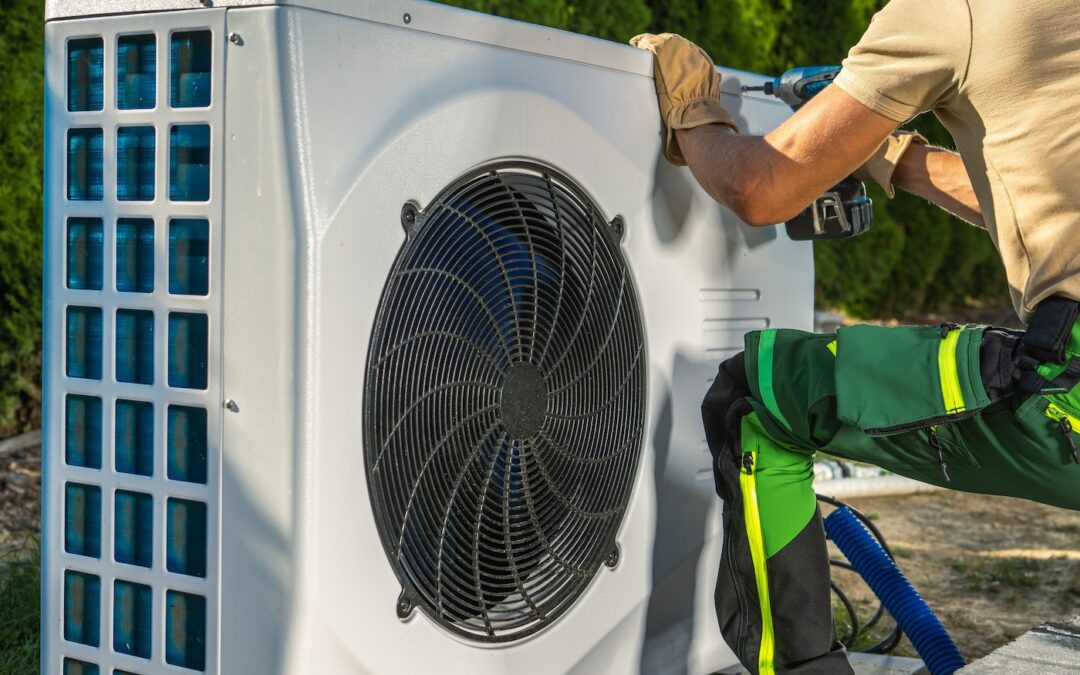
Here’s how to lower your home’s energy bill under the Inflation Reduction Act
It begins with assessing your home’s current energy use, planning improvements, then getting connected to the credits and rebates that can create...
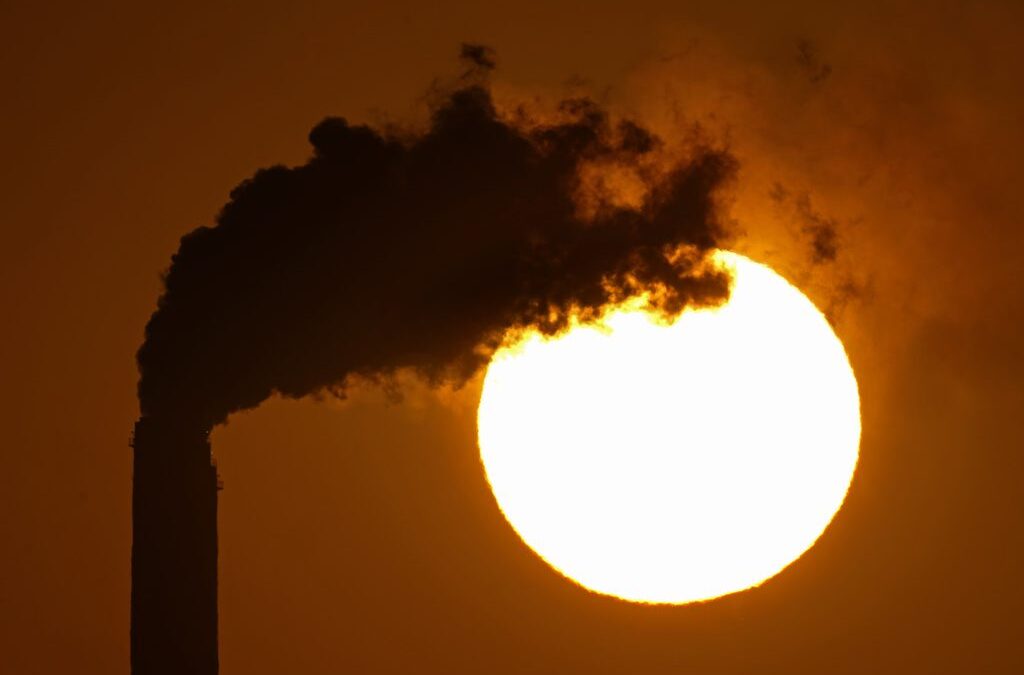
Biden’s EPA announces rules to slash coal pollution, speed up clean energy projects
The Biden administration last month announced a set of four final rules designed to reduce harmful pollution from power plants fired by fossil...
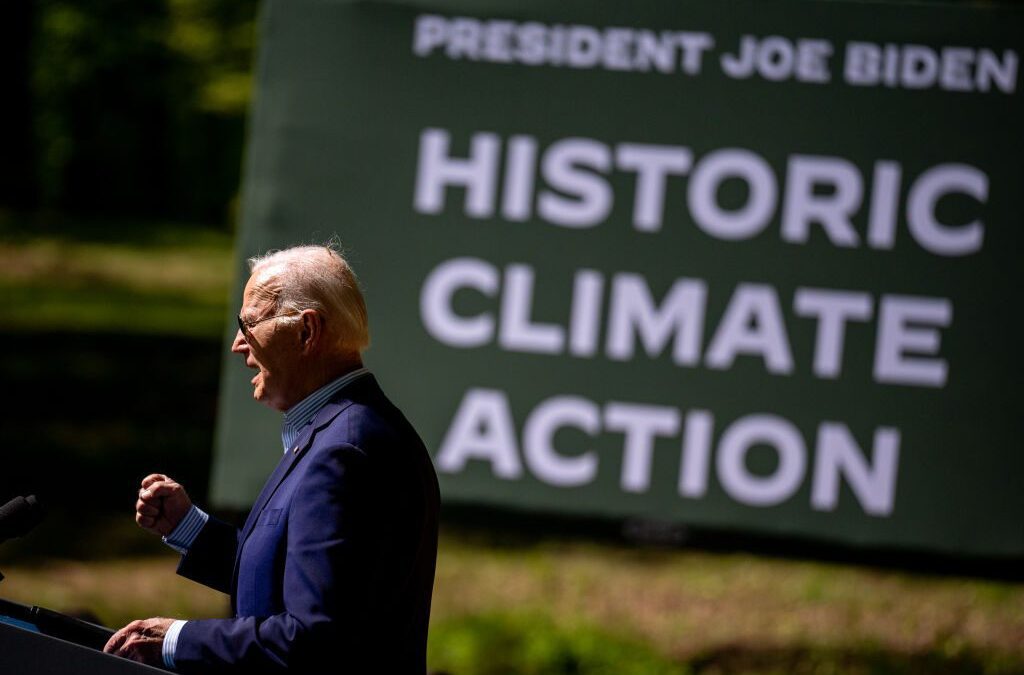
How to apply for a job in the American Climate Corps
The Biden administration announced its plans to expand its New Deal-style American Climate Corps (ACC) green jobs training program last week. ...




